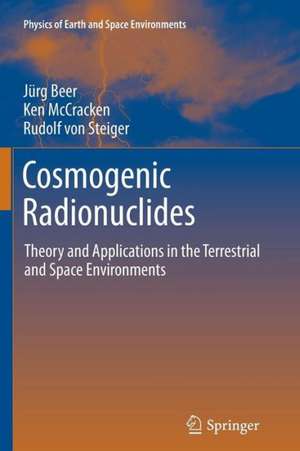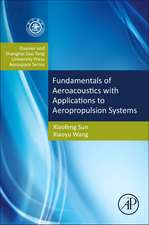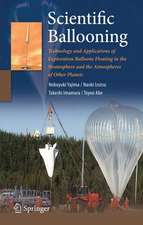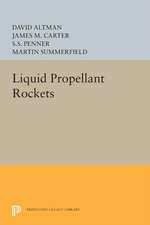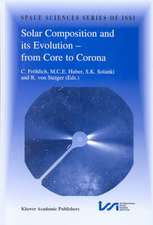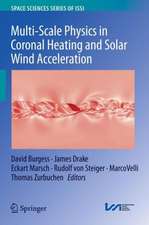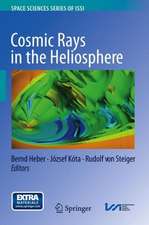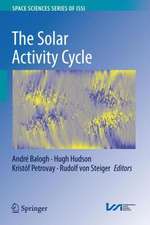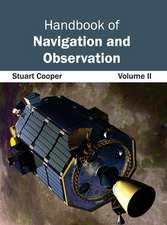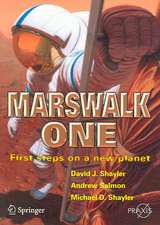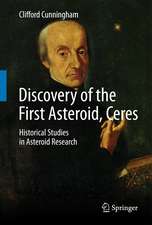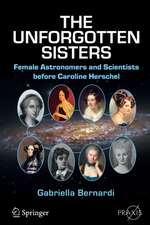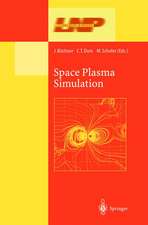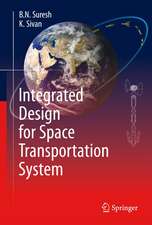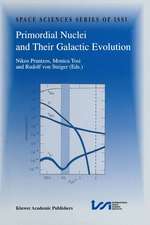Cosmogenic Radionuclides: Theory and Applications in the Terrestrial and Space Environments: Physics of Earth and Space Environments
Autor Jürg Beer, Ken McCracken, Rudolf Steigeren Limba Engleză Paperback – 22 feb 2014
| Toate formatele și edițiile | Preț | Express |
|---|---|---|
| Paperback (1) | 1114.83 lei 6-8 săpt. | |
| Springer Berlin, Heidelberg – 22 feb 2014 | 1114.83 lei 6-8 săpt. | |
| Hardback (1) | 1117.82 lei 6-8 săpt. | |
| Springer Berlin, Heidelberg – 19 ian 2012 | 1117.82 lei 6-8 săpt. |
Preț: 1114.83 lei
Preț vechi: 1359.55 lei
-18% Nou
Puncte Express: 1672
Preț estimativ în valută:
213.33€ • 228.12$ • 177.86£
213.33€ • 228.12$ • 177.86£
Carte tipărită la comandă
Livrare economică 18 aprilie-02 mai
Preluare comenzi: 021 569.72.76
Specificații
ISBN-13: 9783642431609
ISBN-10: 3642431607
Pagini: 444
Ilustrații: XVI, 428 p.
Dimensiuni: 155 x 235 x 23 mm
Greutate: 0.62 kg
Ediția:2012
Editura: Springer Berlin, Heidelberg
Colecția Springer
Seria Physics of Earth and Space Environments
Locul publicării:Berlin, Heidelberg, Germany
ISBN-10: 3642431607
Pagini: 444
Ilustrații: XVI, 428 p.
Dimensiuni: 155 x 235 x 23 mm
Greutate: 0.62 kg
Ediția:2012
Editura: Springer Berlin, Heidelberg
Colecția Springer
Seria Physics of Earth and Space Environments
Locul publicării:Berlin, Heidelberg, Germany
Public țintă
ResearchCuprins
Part 1 Introduction.- Part 2 Cosmic Radiation.- Part 3 Cosmogenic Radionuclides.- Part 4 Applications.- Glossary.- Reference Data.
Notă biografică
Jürg Beer is a pioneer in cosmogenic radionuclides measured in polar ice cores. Rudolf von Steiger is director of the International Space science Institute in Bern. His research focusses on the Solar Wind. Ken McCracken is a pioneer in cosmic rays research and space research from early satellites.
Textul de pe ultima copertă
Cosmogenic radionuclides are radioactive isotopes which are produced by natural processes and distributed within the Earth system. With a holistic view of the environment the authors show in this book how cosmogenic radionuclides can be used to trace and to reconstruct the history of a large variety of processes. They discuss the way in which cosmogenic radionuclides can assist in the quantification of complex processes in the present-day environment. The book aims to demonstrate to the reader the strength of analytic tools based on cosmogenic radionuclides, their contribution to almost any field of modern science, and how these tools may assist in the solution of many present and future problems that we face here on Earth.The book provides a comprehensive discussion of the basic principles behind the applications of cosmogenic (and other) radionuclides as environmental tracers and dating tools. The second section of the book discusses in some detail the production of radionuclides by cosmic radiation, their transport and distribution in the atmosphere and the hydrosphere, their storage in natural archives, and how they are measured. The third section of the book presents a number of examples selected to illustrate typical tracer and dating applications in a number of different spheres (atmosphere, hydrosphere, geosphere, biosphere, solar physics and astronomy). At the same time the authors have outlined the limitations of the use of cosmogenic radionuclides.Written on a level understandable by graduate students without specialist skills in physics or mathematics, the book addresses a wide audience, ranging from archaeology, biophysics, and geophysics, to atmospheric physics, hydrology, astrophysics and space science.
Caracteristici
Demonstrates strength and limitations of radionuclides as analytic tools Written for a multi-disciplinary research readership Background knowledge carefully explained in boxes Contains chapter and section summaries, detailed derivations of results and many detailed illustrations Includes supplementary material: sn.pub/extras
